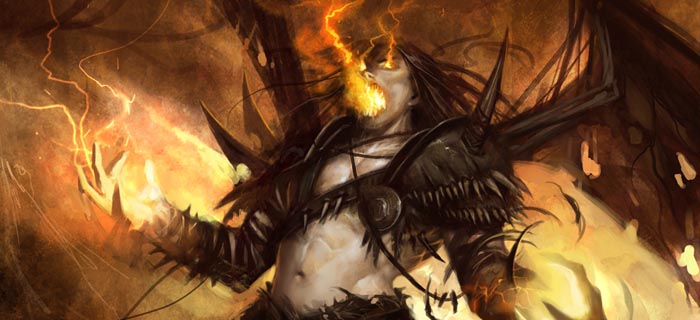What every game designer needs to learn from Dark Souls
I’ve recently begun making my way through my extensive Steam backlog, and decided to begin with Dark Souls: Prepare to Die Edition. And while I’ve learned a lot (primarily related to dying and the preparation thereof), I was most surprised to learn just how well crafted Dark Souls actually is.
Indeed, it is one of the most purposeful and brilliant games I’ve ever played, and even after a few hours, it’s obvious that Dark Souls contains within it lessons every developer should study. This title, while not perfect, is a shining example of what a gaming experience can be… and here’s why.
Experience is more important than EXP
Since it’s an RPG, Dark Souls is chock full of the typical role-playing gameplay elements: random weapon loot, incredibly annoying NPCs, and experience-based progression. But while there are character stats to boost and levels to gain, leveling isn’t the primary means by which the player is expected to vanquish enemies.
No, as unorthodox as it is, player skill is the primary deciding factor in victory. See, you’ll fight lots of monsters, but they’re a far cry from the typical EXP-dispensers you’d find in, say, Diablo 3 or Path of Exile. Even the most basic skeletons can cut you down in two or three attacks, meaning they can’t be defeated simply by swinging a sword in their general direction and chugging potions when your health bar gets low. Even with the best equipment in the world, fighting these simple enemies is difficult the first time around.
Instead, you the player must watch and learn. You have to study the enemy, discern its strengths and weaknesses. In other words, you must gain combat experience by literally gaining experience in combat. Yes, having an awesome sword will make it easier to capitalize on your newfound knowledge, but knowledge is the pre-requisite for victory. In fact, it’s what has allowed a few brave gamers to take down a seemingly unbeatable boss basically unarmed.
This obviously stands in stark contrast to the norm, where players are forced to grind up to a certain gear level to even have a chance at success. And, once they do, all previous game content becomes completely trivial. In Dark Souls, challenges are challenging because they require thought and skill, and always maintain the possibility of danger no matter how powerful the player character becomes.
Actions speak louder than cut scenes
Not to pour needless additional hate on Diablo 3, but let’s face it: the game didn’t exactly deliver its story with any real level of style or panache. The majority of the exposition was produced via big screen-quality cut scenes, in addition to B-movie grade in-game scenarios acted out by the cast of Mighty Morphin Power Rangers.
You’ll find none of that in Dark Souls. Hell, you wouldn’t be blamed if you couldn’t find any story at all. There’s some introductory lore, yes, but the vast majority of your travels are spent weathering the underworld in solitude, scraping together an existence against relentless and terrifying enemies. Yet despite the lack of a traditional narrative structure, the game world feels rich. And the deeper you get into the gothic tale, you realize you’ve learned most of what the world has to offer from simply playing, not absorbing CGI video.
This is actually something that the original Diablo did very well. While there were cut scenes (maybe just two or three, if I recall), the vast majority of the lore was experienced by simply playing the game. Every now and then an NPC would provide some background information, but for the most part you simply figured out what was going on by merit of the environments, items, and enemies. You’ll find the same general vibe in Half Life 2 and Portal, which certainly laid the groundwork for their enduring charm and emotional pull.
Very real risk, very real reward
In addition to the difficulty posed by each individual enemy, the overall setup of Dark Souls encourages players to constantly weight the costs and benefits of every decision they make. Vanquishing adversaries garners experience (in the oh-so-common denomination of souls), so it makes sense that players would want to head out and take on whatever baddies they can find.
But there’s a catch: dying will drop all your souls to the ground and respawn all enemies, forcing the player to face the same gauntlet that killed him/her last time if they want a chance at retrieving their previous gains. But there’s another catch: if you die while adventuring for your last corpse, your original souls will dissipate, and you’ll leave behind a new (and probably less valuable) pile of money.
That’s right, souls aren’t just experience points; they’re also literal currency. So not only must you guard your soul collection if you wish to progress and don new equipment/spells, you’ll also have to decide if you should be spending your spectral bucks on cool gear or the stats necessary to wear the cool gear. That’s not always an easy call to make.
This system may sound tedious, but it adds a welcome and hefty dose of control to the game. Instead of an automatic progression or a clear line of “best” choices, each player must approach Dark Souls as an individual, making choices that will ultimately affect every aspect of the quest. When bad decisions are made, you die and you learn. But when good decisions are made, your character prospers… and you feel like a badass.
That’s really what this all boils down to: feeling like a badass. Dark Souls doesn’t give the player much for free, whether it’s experience, loot, or lore. But when you the player pry it from the game with patience, reflexes, or ingenuity, the reward is visceral, real, and lasting. And until more games truly prepare their players for consequences, Dark Souls will stand apart from the herd as a not-so-shining example of brilliant design.








WiNG, please make a let’s play of the whole Dark Souls 2 when it comes out.
Wow nice article! I hadn’t looked at Dark Souls that way until now! ;)
Arse punches. All of them.
Anyhow. I find the concept of souls serving as the omnipotent currency far more intricate than I’d expected it to, which makes me wonder why no one else seems to do it.
See, in XCOM for example, money does rule things, but you’ll be dealing in no less than 4 currencies, plus corpses, very soon, and most items are balanced based on their cost in each respective currency, meaning that you often can craft one with little regards of having enough stuff to craft something else.
This system however, for which FTL is the only other game that comes to mind which also uses it, forces you to really weigh your options against each other. Sure you could spend your souls/scrap on upgrading your stats/reactor, but if you do, you won’t have enough to buy/upgrade that neato other thing.
Since almost every money sink is a vital part of the game, you need to decide which is the most important right now.
Although I’ve found that the game quite clearly does not expect you to wield a Claymore +5 as soon as you can. Well, I’ve got too many souls, farmed enough of them while trying to get past these bloody poisoning rats.
But back to the point, I’m all over a game which rewards skill over numbers. Too bad that there aren’t any. I’d expected Dark Souls to provide me with some challenge, but no luck either. Not easy being awesome.
I think many devs could learn a lot from Dark Souls, even if you just line it and one of their releases, say, SimCity, Dead Space 3, or Infinite, up, point towards DS, say, “THIS!”, towards their release, and say, “NOT THAT!”
There was that scandal lately saying that Tomb Raider and who knows what else were complete failures because they failed to meet EA’s oversized sale goals, even though they DID sell a few million copies, three times as many as Dark Souls, which was a huge success.
So the lesson to be learned is probably that you should not pump more money into your game than you expect to come out of it, and that QA is NOT the place that you can take money from first.
Hey, coming to think of it, who would win in a fight for being the most evil people in the universe? GameStop or EA?
Also, another thing devs could probably learn from Dark Souls is that challenge does not equal difficulty. At that, neither one is to be established by tossing health/damage multipliers everywhere and keeping the player busy with unfair moves.
See, this is what I hated about Super Meat Boy, aside from it being no more than a level pack for a flash game. It’s not challenging, it’s just hard. Maybe it’s not even hard, just unfair.
“Oh, but you’re just saying that because you’re too bad to beat it,” said the fanboys. No, I beat everything on hard mode, including your little flash movie, but too often, hard difficulty doesn’t mean any more challenge. It only means that the devs are going to be all the bigger dicks to you.
The same thing applies in Infinite. I ran through it on Hard, and the only times when I ever died was when trying to use the melee attack, when tossed into a scenario without sufficient cover, or when out of ammo. The game plays exactly like it would on Easy, but the enemies are elevated into instakilling bullet sponges in order to create more difficulty.
Basically what I’m saying is that in order for a game to call itself challenging, it needs to give you a fair chance to win if you’re good enough and establish difficulty through other means than by having you fight demons of hell with a rubber duck.
Only when it is clear that you have a fighting chance, no matter how small it is, does your victory actually feel like it came from your own efforts and not gambling with the RNG.
Yes, Dark Souls has plenty of unfairness within it too, but at least that is calculable and mostly stays out of the bossfights. After some time, I found myself thinking exactly like the game. Lone mob ahead? There’s an ambush buddy around the corner. Item? It’s a frickin’ trap, idiot! Empty hallway? Guess what, the miniboss you recently fought is gonna respawn behind you!